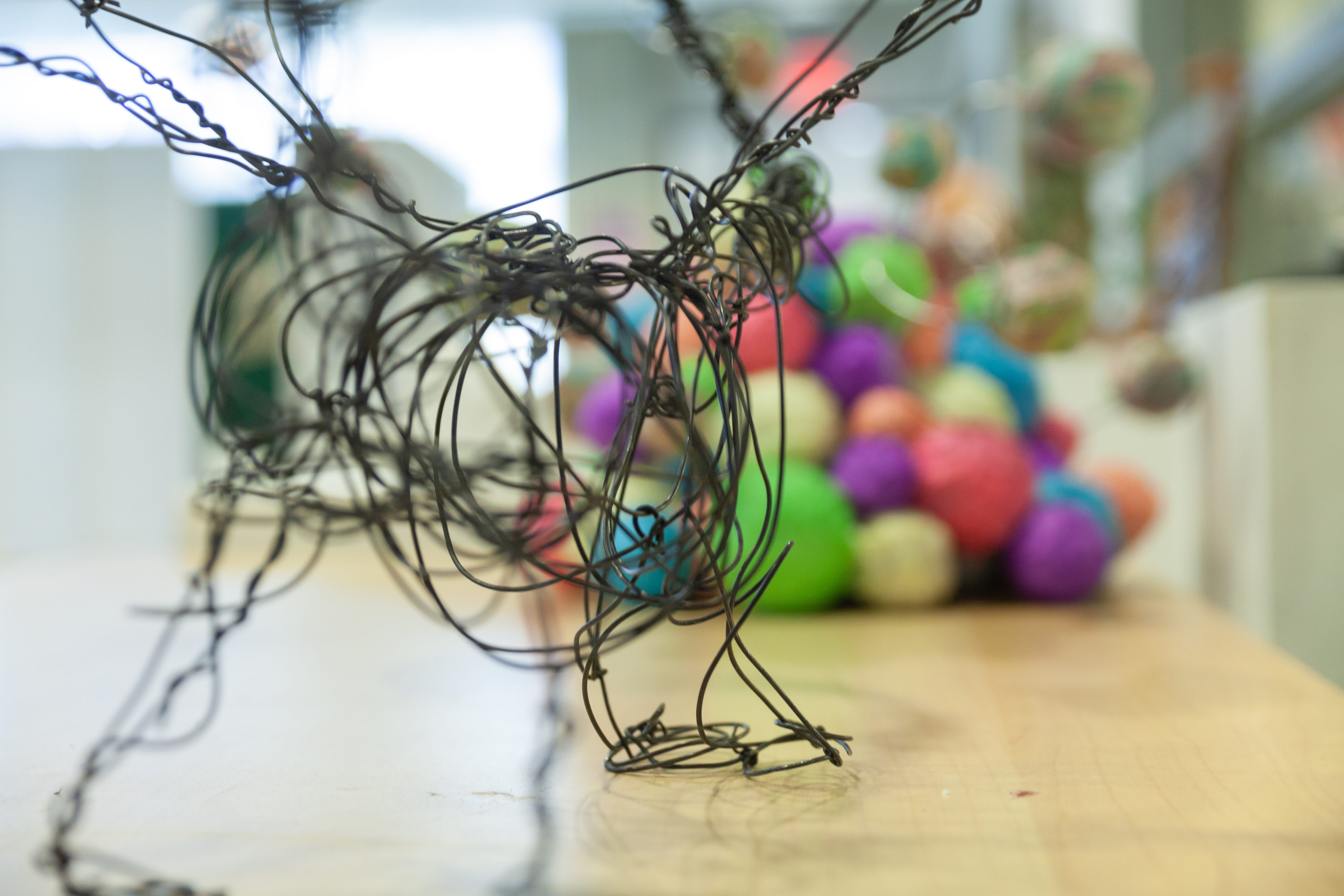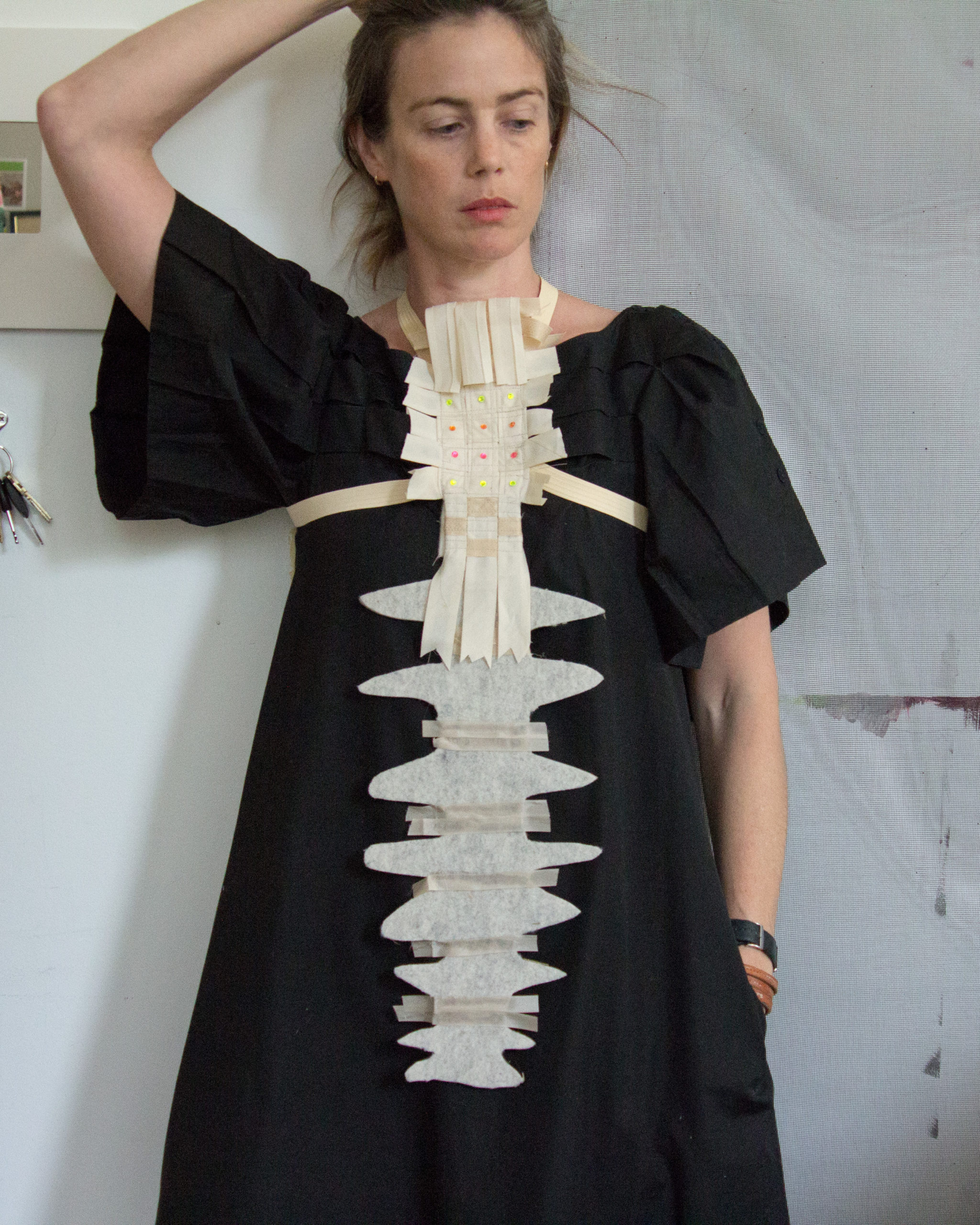Roxana Geffen
Adjunct Faculty
Aesthetics
2050 Art and Design Building; MSN: 1C3
(703) 993 – 8898
rgeffen@gmu.edu

Roxana Geffen

Roxana Alger Geffen is a multi-disciplinary artist who shows her work nationally and internationally, including at the Kreeger Museum, Museum of Design Atlanta, The Skirball Cultural Center, Woodlawn Pope-Leighey House, The National Museum of American Jewish History, Flashpoint Gallery and the Arlington Arts Center. She studied visual art at Columbia University as an undergraduate, and received her MFA in painting from Boston University. She lives in Washington, D.C. with her husband and three children, and loves teaching Aesthetics at Mason.
“My work always revolves around odd juxtapositions. I start with objects, trying to find combinations that seem unexpected but energetic. I add other materials, feeling my way to a complex whole that has that first moment of contrast at its core. Later in the process, I begin to be aware of the thematic or conceptual elements of the piece, but I always start with an intuitive response to real things.The textile techniques I use have long, important traditions of their own, but I like their practicality and their physicality, the tactile experience of pulling and twisting rope, of piercing cloth with a needle.
My current body of work examines my family and its complicated, contradictory relationship to privilege, race and class. My ancestors include a number of famous reformers who both challenged and benefitted from the system of American slavery, and were both visionary and blind about issues of race. My understanding of my own Whiteness was formed, in part, out of my pride in their accomplishments and shame at their failures. I also see their complexities as reflective of a fundamental and ongoing contradiction of our national identity: that we are a country founded in both moral idealism and racist oppression.“

